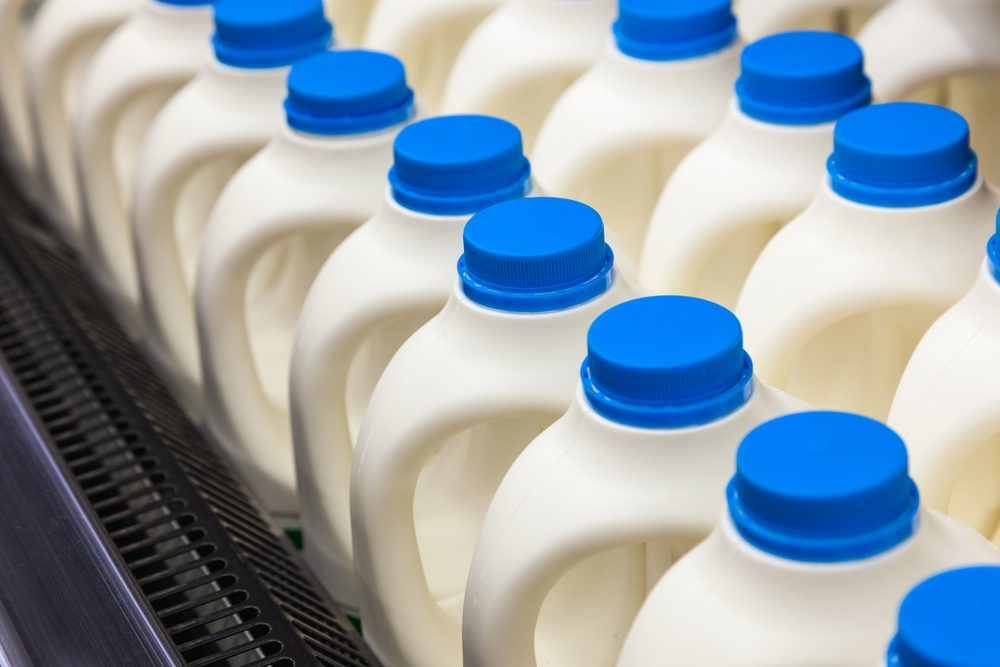National Farmers’ Union Scotland (NFUS) has welcomed positive milk price moves in recent weeks – however, the organisation said it believes that a farm-gate price of 30p/L is “achievable”.
NFU Scotland’s Milk Committee visited First Milk’s headquarters in Paisley earlier this week. The farmer-owned co-op announced a milk price increase of 1.2p/L for July.
The news takes its price on a liquid standard litre (4% butterfat and 3.3% protein) to 27.2p, whilst the manufacturing standard litre (4.2% butterfat and 3.4% protein) will be 28.12p/L.
A strengthening market?
Recent announcements from Muller and Arla also reflect the strengthening seen in all dairy commodity prices.
Speaking from Paisley, Milk Committee chairman John Smith, a dairy farmer from Campbeltown, said processors should take the opportunity to increase farm-gate prices.
We firmly believe that a farm-gate price of 30p/L is achievable. It is essential that all parts of the supply chain ensure strengthening markets are reflected quickly in prices.
“There are many different milk contracts out there and achieving all the quality and production bonuses will be a challenge for some, but the tone of the market is definitely changing. More increases must follow as futures markets and physical sales of commodities are both very positive.
Rising prices
“All processors must take this opportunity to build trust in their pricing models by increasing farm-gate prices at a pace and magnitude that reflects where the market is.
“Key price indicators, the Actual Milk Price Equivalent (AMPE) and Milk for Cheese Value Equivalent (MCVE) now sit at an average of more than 33p/L. Prices for milk powders, butter and cream are all up more than 10% in the past month.
“That justifies price increases that would allow dairy farmers to start to rebuild their balance sheets after a very difficult extended period of poor prices and higher costs due to a very difficult winter.”
Simplifying pricing
At the visit to First Milk, committee members heard more about the co-op’s recent move back to a more simplified pricing model for all members, and the development of a strong farmer governance structure.
The new strategy is designed to simplify and streamline the First Milk business for the benefit of their members after several difficult years for the co-op.
The committee also discussed the need for a more open dialogue with milk buyers on Red Tractor standards and the prospect of legislation on dairy contracts.
Rebalancing power in the industry
Earlier this year, Defra accepted a recommendation from the Grocery Code Adjudicator that dairy farmers are disadvantaged by an imbalance of power in the dairy supply chain.
Milk policy manager George Jamieson added: “NFUS and our fellow UK unions are very clear that we see this as a massive opportunity for the entire dairy supply chain to develop an agreement on contracts that build trust, fairness and efficiency, resolving the key factors of pricing, volume and volatility.
That there is a problem is clear to see. Any progressive processor confident in their business and who values their milk supply should view this initiative as an opportunity.
“Sadly, the reaction of some processors is to view this as a threat and are already using ‘fear’ tactics to cloud the issue.
“NFUS is actively assessing all the evidence, and is open-minded about the choices, but we will pursue positive outcomes for the sector.”

